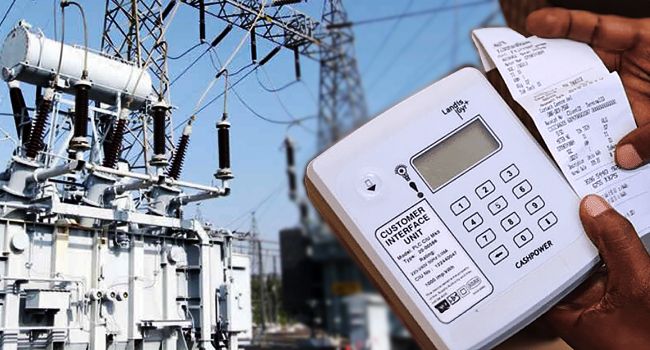The Controversy in Context
Nigeria’s electricity sector is once again embroiled in controversy as businesses and consumers push back against a new directive by electricity distribution companies (DisCos). The latest dispute centers on the mandated upgrade of outdated electricity meters, with DisCos threatening to switch non-compliant users to the much-criticized estimated billing system.
The deadline for compliance, set for November 24, has triggered widespread discontent, particularly among business owners already grappling with Nigeria’s challenging economic environment. For many, the additional cost is not just a financial inconvenience but a threat to business survival.
How the Fees Impact Business Owners
Unlike residential consumers, businesses face amplified consequences from this directive. For small and medium enterprises (SMEs), consistent electricity supply is critical for operations. Yet, the costs associated with upgrading meters are straining already tight budgets.
Take for instance, Tayo’s Printing Services, a Lagos-based SME reliant on consistent electricity to power high-capacity printers. “We barely survived the last tariff hike. Now, I’m expected to shell out more for a new meter just to stay operational. This isn’t sustainable,” said the proprietor.
Similarly, cold chain businesses, such as those dealing in perishable goods, face the risk of increased operational costs or disrupted services if estimated billing leads to inconsistent or inflated electricity bills. “If they switch us to estimated billing, I might as well shut down. I can’t pass on such unpredictable costs to my customers,” lamented Ayodeji Adenuga, who runs a mid-sized frozen foods business in Abuja.
Why Are DisCos Insisting on Meter Upgrades?
DisCos argue that upgrading outdated meters is essential for improving efficiency in Nigeria’s electricity distribution network. A senior official from one of the companies compared the upgrade to software updates for smartphones. “You can’t expect your iPhone 5 to work seamlessly in today’s world. Similarly, outdated meters can’t meet the demands of a modernized grid.”
The DisCos also claim that the new meters will reduce technical errors and enhance billing transparency, supposedly benefiting businesses in the long run. However, business owners question why the financial burden falls squarely on their shoulders.
Regulatory Interventions and Mounting Frustrations
The backlash from business owners and consumers alike has caught the attention of regulatory bodies. The Nigerian Electricity Regulatory Commission (NERC) and the Federal Competition and Consumer Protection Commission (FCCPC) have urged DisCos like Ikeja Electric and Eko Electricity Distribution Company (EKEDC) to halt their plans to phase out old meters, especially as the Unistar devices in question are reportedly still functional.
NERC has made it clear that, under its guidelines, DisCos are responsible for replacing faulty or obsolete meters at no cost to the customer unless the damage was customer-induced. However, implementation remains a challenge.
“Even with these interventions, it’s unclear who will enforce compliance,” said Kemi Oladipo, an advocate for SME empowerment. “Meanwhile, businesses are left in limbo.”
The Role of Meter Asset Providers (MAPs)
Adding to the controversy is the involvement of Meter Asset Providers (MAPs), private companies tasked with supplying and installing meters. While MAPs aim to bridge the gap in meter availability, businesses report delays and inefficiencies in the installation process.

“For over three months after payment, I’ve been waiting for my meter. How do I run my restaurant when I can’t predict my electricity expenses?” queried John Adebayo, a restaurateur in Lagos.
The inefficiency of MAPs, coupled with the financial burden of the fees, has eroded trust in the system. Businesses are now questioning the accountability of both DisCos and regulatory bodies.
Economic Realities vs. Operational Costs
The timing of this directive couldn’t be worse. With inflation at record highs, fuel price increases, and a weakening naira, many businesses are already operating on razor-thin margins.
For manufacturers, electricity accounts for a significant portion of production costs. An upgrade fee that runs into tens of thousands of naira could mean delaying critical investments or, worse, laying off staff. Retailers who rely on uninterrupted electricity to power cooling systems for goods like beverages or pharmaceuticals are similarly squeezed.
A Call for Collaboration
The business community is now demanding a more collaborative approach. Instead of imposing fees, stakeholders argue that the cost of meter upgrades should be integrated into operational budgets for DisCos or amortized over time through manageable installments.
SEE ALSO: Nigeria’s National Grid Collapses Again, Worsening Struggles for Startups and Businesses
“We need to shift from adversarial policymaking to solutions that consider the realities of businesses,” said Funmi Ogundele, a policy analyst. “Without this, we risk stifling the entrepreneurial spirit that drives our economy.”
The Road Ahead
With the November 24 deadline fast approaching, the future remains uncertain for many Nigerian businesses. While regulatory bodies like NERC have issued strong statements, enforcement will be the key to resolving this issue.
For now, business owners must weigh their options—comply with the directive or risk inflated bills that could jeopardize their operations. One thing is certain: the ongoing meter fee battle has brought to light deeper systemic issues in Nigeria’s electricity sector that cannot be ignored.



